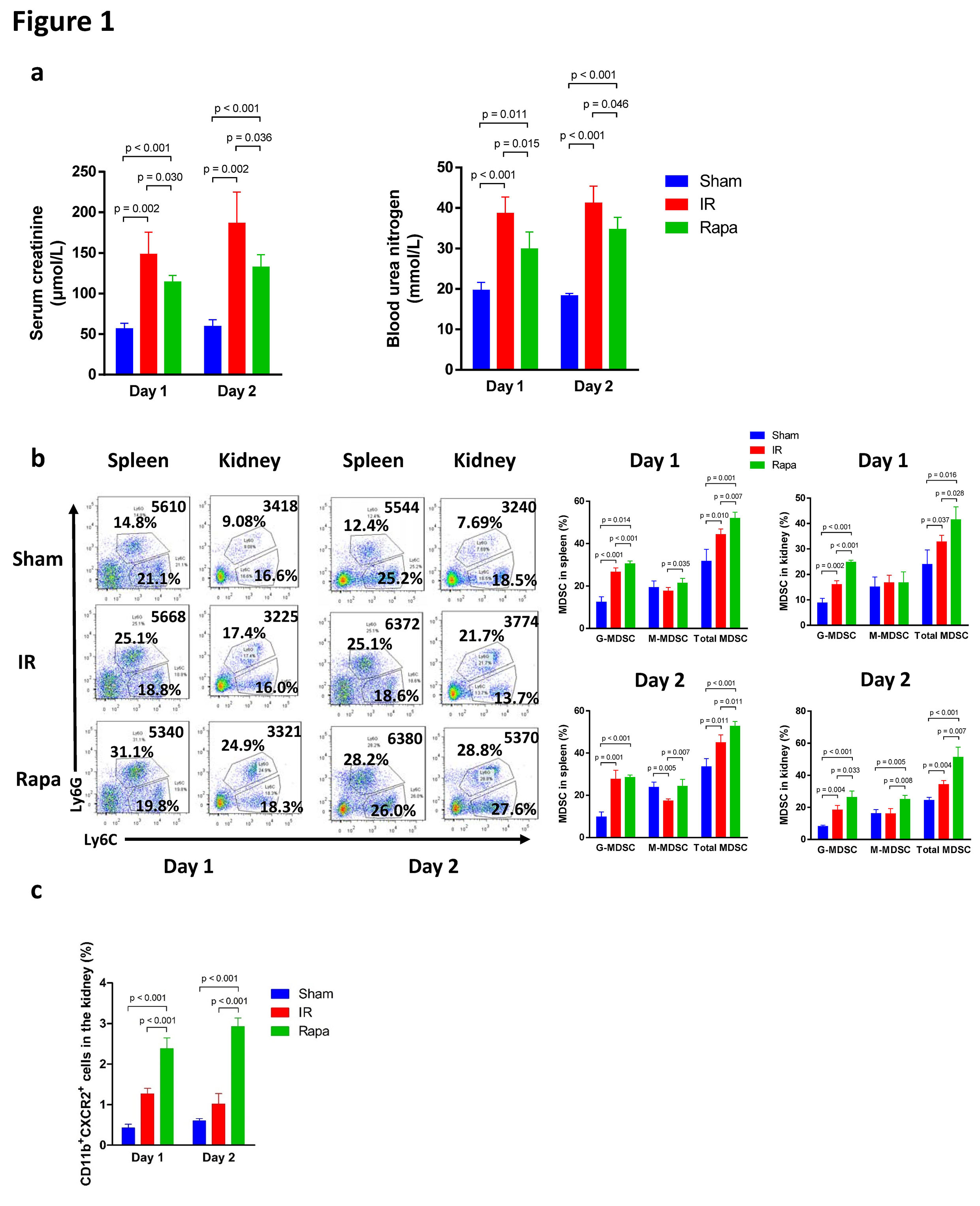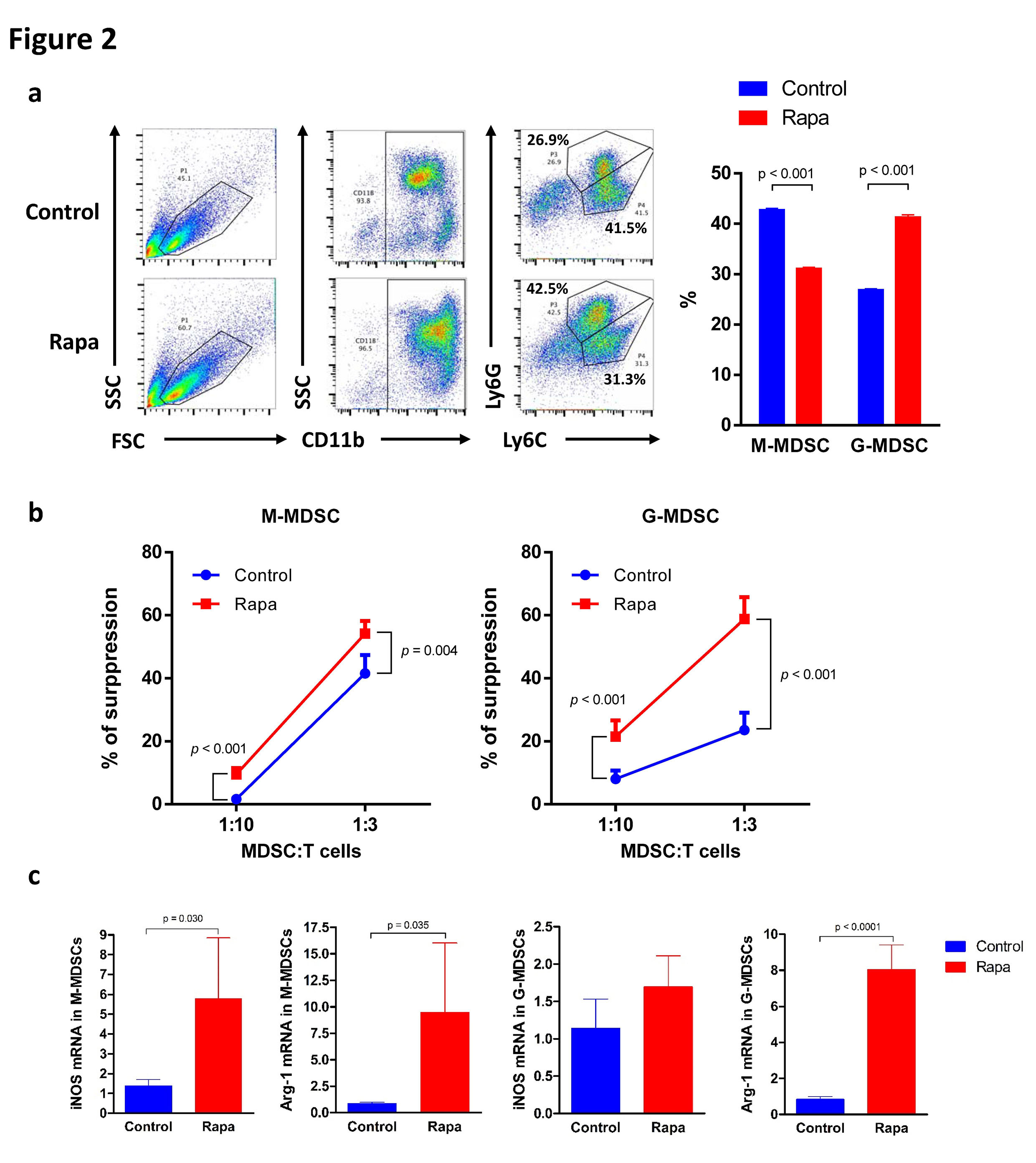The mTOR Signal Regulates Myeloid Derived Suppressor Cells Differentiation and Immunosuppressive Function in Acute Kidney Injury.
Urology, Zhongshan Hospital, Fudan University, Shanghai, China
Meeting: 2017 American Transplant Congress
Abstract number: 547
Session Information
Session Name: Concurrent Session: Pathways in Ischemia Reperfusion
Session Type: Concurrent Session
Date: Tuesday, May 2, 2017
Session Time: 4:30pm-6:00pm
 Presentation Time: 5:06pm-5:18pm
Presentation Time: 5:06pm-5:18pm
Location: E351
The mammalian target of rapamycin (mTOR) is a serine–threonine kinase that senses various environmental stimuli. The mTOR signal controls innate and adaptive immune response in multiple immunoregulatory contexts. Myeloid derived suppressor cells (MDSCs) are a heterogeneous population of myeloid cells of potent immunosuppressive capacity. In this study, we aimed to investigate the role of MDSCs in the protection of acute kidney injury (AKI) and the regulation of mTOR signal on MDSC's protective role in this context. In mice AKI model, MDSCs, especially CD11b+Ly6G+Ly6Clow G-MDSCs were recruited to the injured kidney following the interaction of CXCL1, CXCL2 and their receptor CXCR2 after inhibiting mTOR signal with rapamycin treatment. Adoptive transfer of rapamycin-treated MDSCs significantly improved renal function, ameliorated histologic damages and limited the infiltration of T cells in kidney tissue. In addition, the expression of pro-inflammatory cytokine IL-1β, IFN-gamma mRNA was down-regulated while the expression of TGF-β1 and Foxp3 mRNA was up-regulated after transfer of rapamycin-treated MDSCs. In in vitro study, inhibiting mTOR signal regulated the induction of MDSC from bone marrow cells towards the CD11b+Ly6G+Ly6Clow G-MDSC subset. The immunosuppressive function of both CD11b+Ly6G+Ly6Clow G-MDSCs and CD11b+Ly6G–Ly6Chigh M-MDSCs was enhanced by down-regulating mTOR signal via increased expression of arginase-1 and iNOS. Taken together, our results demonstrated the protective effect of bone marrow-derived MDSCs on acute kidney injury in the mice model, which was enhanced by mTOR signal inhibition via promoting MDSCs recruitment to injured kidney, regulating the induction of MDSCs and strengthening their immunosuppressive activity. 

CITATION INFORMATION: Yang C, Zhang C, Rong R, Zhu T. The mTOR Signal Regulates Myeloid Derived Suppressor Cells Differentiation and Immunosuppressive Function in Acute Kidney Injury. Am J Transplant. 2017;17 (suppl 3).
To cite this abstract in AMA style:
Yang C, Zhang C, Rong R, Zhu T. The mTOR Signal Regulates Myeloid Derived Suppressor Cells Differentiation and Immunosuppressive Function in Acute Kidney Injury. [abstract]. Am J Transplant. 2017; 17 (suppl 3). https://atcmeetingabstracts.com/abstract/the-mtor-signal-regulates-myeloid-derived-suppressor-cells-differentiation-and-immunosuppressive-function-in-acute-kidney-injury/. Accessed February 21, 2026.« Back to 2017 American Transplant Congress
